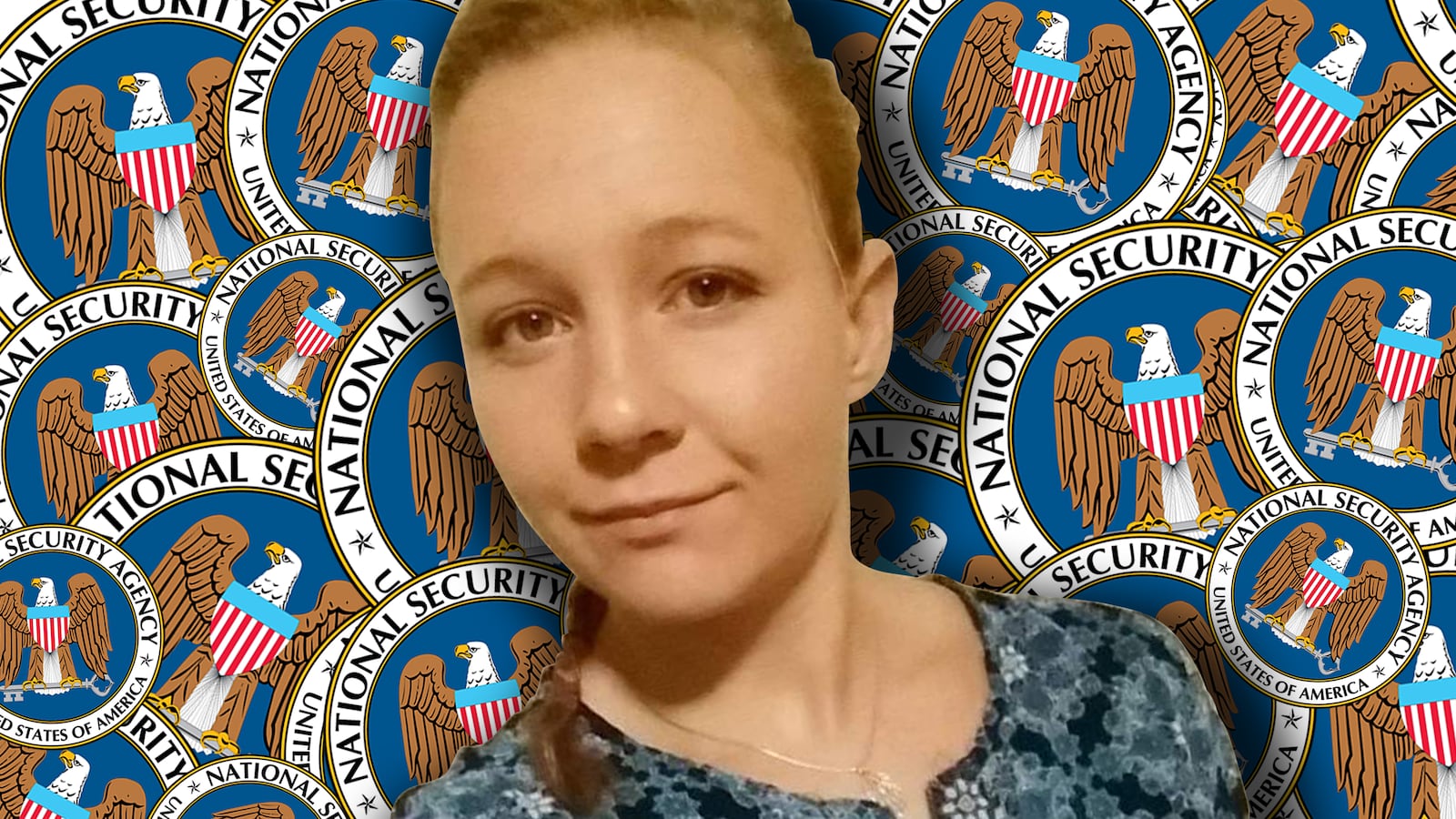The contractor accused of leaking classified information appears to have worked at a National Security Agency post, where her foreign language skills would have been useful to translate intercepted communications.
Reality Winner, 25, was charged Monday by the Justice Department for allegedly sending top secret documents to a news organization last month. (The documents are believed to be NSA files about Russian election hacking, reported on by The Intercept.) Winner didn’t work directly for the NSA though: she allegedly obtained these documents while working as a contractor for Pluribus International Corporation. Pluribus’ website shows that the company’s only Georgia outpost to be at Fort Gordon Army base near Augusta. Her résumé suggests she was working at the Georgia Cryptologic Center, a vast NSA outpost located at Fort Gordon.
Nicknamed “Sweet Tea,” the 604,000-square-foot facility collects signals intelligence from Europe, North Africa and the Middle East, Wired previously reported. Sweet Tea, which opened in full in 2012, is reportedly equipped to house 4,000 specialists working to translate and analyze intercepted communications.
“Run by the ultra-secret National Security Agency, it is where the agency eavesdrops on the Middle East and Northern Africa, thousands of miles away,” journalist James Bamford wrote of a preliminary version of the then-under construction site in 2008. “Inside, behind barbed-wire fences, heavily armed guards, and cipher-locked doors, earphone-clad men and women secretly listen in as al-Qaeda members chat on cell phones along the Afghan border, and to insurgents planning attacks in Iraq.”
Pluribus International, where Winner worked since February, is one of a number of contracting firms established after the September 11 attacks as the U.S. scaled-up its intelligence operations. Founded in 2004, Pluribus specializes in translation and analysis services for government agencies, particularly in the intelligence community.
“There’d always been private contractors, but it expanded considerably and took off exponentially after 9/11 with the global war on terror, and hasn’t truly gone away,” Bradley Moss, an attorney specializing in national security and security clearance law told The Daily Beast. “There’s extensive and considerable reliance by the intelligence community in particular upon private contractors.”
Winner joined the Air Force in 2013, where she worked as a translator speaking Farsi, Pashto, and Dari, her mother told The Guardian. She left the military in November, she announced in a Facebook post. Winner’s fluency in Middle Eastern languages, as well as the top secret clearance she earned in the Air Force made her an ideal candidate for a number of intelligence community jobs, particularly those advertised by Pluribus International.
Around the same time Winner was hired, Pluribus International posted a similar job listing for a Farsi-fluent translator with an active security clearance of secret or higher.
“What she did is very common among former military personnel, especially people who, like her, were trained in the military with linguistic skill sets,” Moss said. “She was already vetted and cleared by the Air Force for at least top secret clearance, if not top secret clearance with sensitive compartmented information access eligibility. It transfers over to her contract wherever she goes, in this case apparently the NSA.”
An Army spokesperson for Fort Gordon told The Daily Beast that Winner was a “contractor” who was “not in Fort Gordon.” (Sweet Tea and Fort Gordon operate with considerable independence from each other.) An NSA spokesperson did not confirm whether Winner had worked at Sweet Tea. Winner’s employer, Pluribus International, did not return a request for comment. Their website was offline for much of Tuesday.
According to a DOJ affidavit released Monday evening, Winner has already admitted to leaking the information to the media. If she stands trial, she will not have any whistleblower protections, Moss said.
“There are no legal protections for people who leak classified information to the media,” Moss said. “There is a public interest argument she could raise at sentencing if she’s prosecuted and convicted, to try to mitigate the level of punishment imposed, but you cannot retroactively get whistleblower protection under existing federal law for having leaked classified documents to the media. It does not exist.”
President Donald Trump has threatened to aggressively prosecute leakers. But the limited extent of Winner’s alleged leaks means she will likely face a sentence of fewer than five years, Moss estimated.
“Theoretically, up to 10 years I believe is the concept for each offense,” he said. “Given the narrow scope of the leak and presumably at least some measure of a public interest argument, my assumption right now is she’ll serve something between one to three years.”





